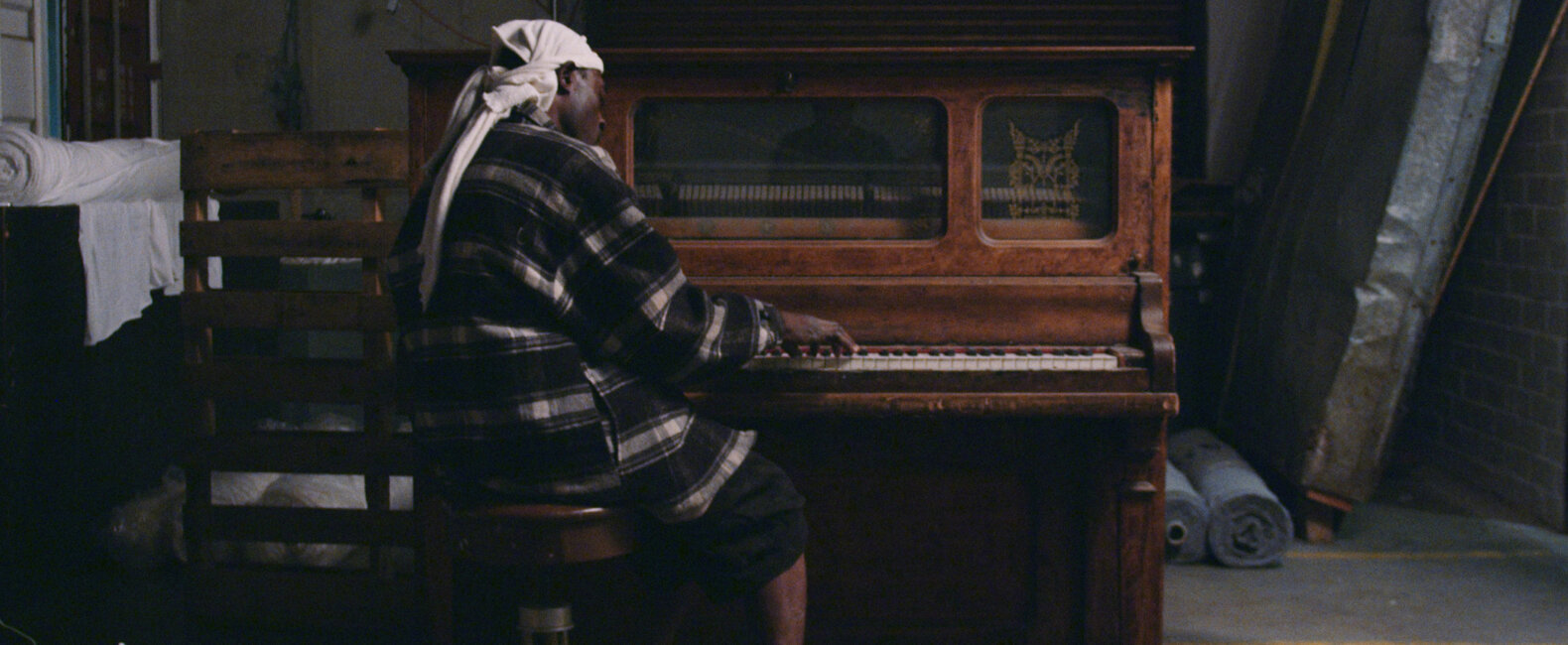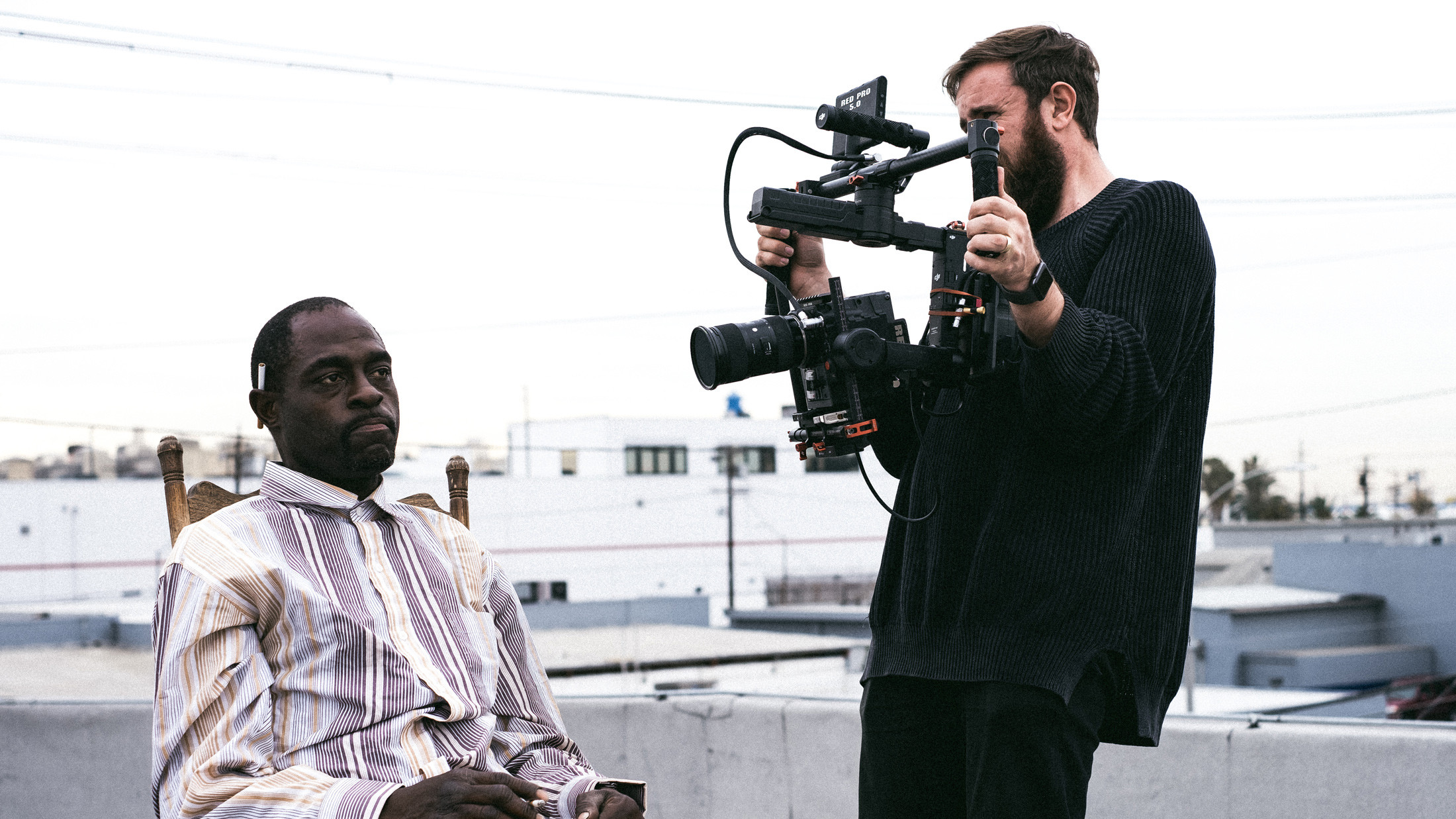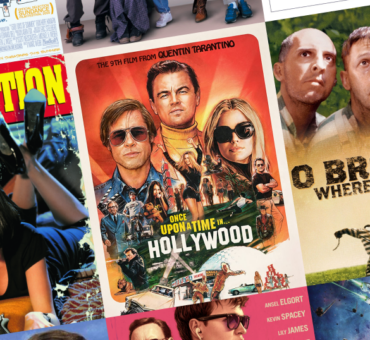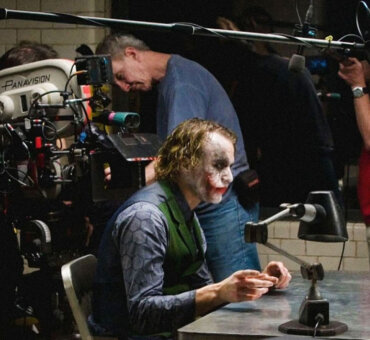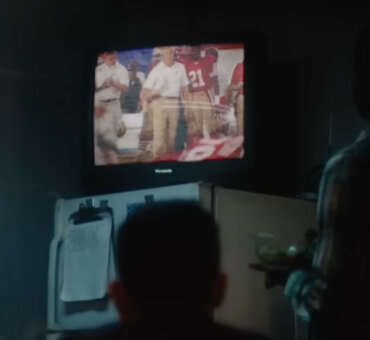Great music is a reflection of the truth, no matter how difficult. It can shed light on harsh realities and give someone a chance to share their story. Take “Keep Running,” a track off of The TVC’s latest EP, for example. It features a man named New York, who’s part of a community of people living on the streets of Skid Row. He lives just outside the studio where The TVC records, and he’s been homeless for nearly ten years. New York has a few things to say about how the homeless are perceived, so when Spencer Riley, producer and vocalist for The TVC, approached him to rap on the track, he wasn’t just giving him a microphone. He was giving him a voice.
“What he brings to the table, which is missing in a lot of creative communities, is a sense of urgency. When you throw privilege into the mix of creating art, it can skew it in some weird ways,” Spencer told us. “I love showing this track to people who’ve never worked with someone like New York and showing them that this is urgency. This is art being vital.”
We had a chance to talk with Spencer about collaborating with New York, and what it means to face the reality he presented. Read our conversation below and watch a stunning documentary produced by Spencer, along with Filmsupply Filmmaker Evan Schneider and director Micah Hamilton.
Musicbed: You’re from L.A. originally?
Spencer Riley: I am, yeah. I grew up on the outskirts of the county. My dad grew up in Boyle Heights, near where I am now, which was a pretty rough neighborhood. He and his brother would box other 6-year-olds on the street because the older brothers would set up these tournaments, and they’d go from street to street fighting the winners. My grandparents eventually moved them to Whittier, where I grew up. They got in so much trouble in Whittier, but by the time I came into the scene, there was none of that toughness around. It was more about music and creativity at that time.
Is that how you were introduced to music?
My dad was a drummer in high school, so I grew up listening to classic rock with him, Led Zeppelin and Bad Company. I’d watch him play drums on the steering wheel, and one day when I was in fourth grade, he came home with a drum kit. That got me hooked. In junior high, I started playing guitar and forming bands and eventually got into producing when I was around 19. I would say I consider myself a vocalist now, but drums still come the most natural to me.
Let’s talk about your studio. Skid Row is an interesting choice.
Yeah. The studio’s something I’m really proud of. Being on Skid Row, it doesn’t look like something you’d expect. It has this allure of high ceilings concrete, exposed brick, wood, and all of the textures that I love and reminds me of New York City. There was also this sense of adventure because 10 years ago there weren’t that many people doing creative things in Skid Row. There were mostly fish houses, warehouses, textiles, and storage. This space started as a clothing company, but it’s evolved, and I had the opportunity to move my studio here.
I was looking to get into downtown L.A. and feel like I was at the heart of something happening, to find inspiration immediately outside my window. It felt insincere sometimes to write the type of stories I wanted to tell if I didn’t live them. There is real life happening outside our windows. There’s diversity. There are so many different subsets of cultures, caught between the business district, financial district, and downtown L.A.
That seems like a perfect segue for bringing up New York.
Yeah, so New York is a perfect example. I see certain people as…I studied film, so I see certain people as hero characters. When you put a mic in front of a singer who has a lot of depth to their life or story, it’s almost like they’re more than a rapper or singer. They’re almost mythological.
Do you know much about his background?
So he’s been on Skid Row for about 10 years, which is the same amount of time it took to develop this studio into what it is today. He lives right outside the gate, which is always in a state of disrepair, and he’s given himself the responsibility of opening and closing the gate in the morning and night. He watches out for people who’ve never been to Skid Row, and watches out for all of us in here. It’s been pretty crazy meeting someone like him, who doesn’t have a home, but really values the safety of others inside the creative community, you know? All of our studios, our gear, everything’s in this building, and he protects us from a lot of the things he experiences every day in his world. Every time my bass player comes to the door, New York is carrying his guitar.
There are so many stories of how New York has affected someone in the artistic community. He’s very relatable and immersed in our culture. He’s had the opportunity to live in other places, and to have a job, but he says, “This is the choice I’ve made, and I’m okay with that.”
How’d you get him involved on the EP?
As I was recording the TVC’s EP, I was trying to capture as many stories from as many people as I could. I just wanted a project I could let go of myself in, and feature whoever I wanted on a track. New York was exciting to me because I just heard the texture of his voice and really wanted to hear what it sounded like coming through a speaker.
He’s the most fearless guy I’ve ever met. But, when I asked him, I saw the fear in his eyes at the thought of doing something he’s never done in the studio. But I talked him through it, and we didn’t even mention specific lyrics. I just told him to tell his story.
So, that’s what he did. He rapped about Skid Row, of feeling like people don’t understand him. His confidence and swagger, there’s just not a lot of people who have that. He comes across like a king when he raps. It’s just really inspiring, just the level of confidence he has about life in general. He brings a lot of joy to people, and he’s a great inspiration for artists who see music as a 9-to-5. He’s as close as you get to bridging that divide between reality and art. It’s almost like if you record him; it’s art. If he’s talking, it’s just reality. There’s not much of a difference. Having him on that track is a big moment for the EP.
What he brings to the table, which is missing in a lot of creative communities, is a sense of urgency. When you throw privilege into the mix of creating art, it can skew it in some weird ways. I love showing this track to people who’ve never worked with someone like New York and showing them that this is urgency. This is art being vital.
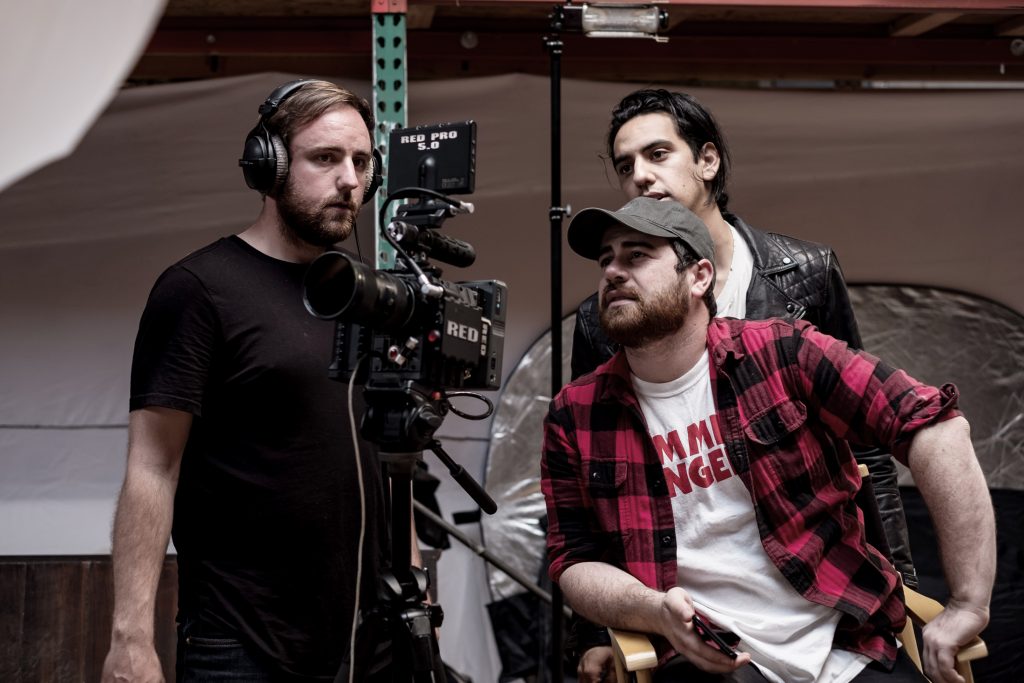
Is there a bigger message inside this song?
Skid Row is always evolving and changing, and nobody knows what’s going to happen to the homeless community, but it’s something that we’re trying to delve into a little bit more, and trying to get as involved in as we can. New York has really opened our hearts to the homeless community, and we don’t want to see just a band-aid put over the area. We’re very conscientious of the fact that we could be part of the problem for the homeless community because we’re bringing in such a big artistic scene and the result could be gentrification. It’s something that may be out of our hands, but we want to be part of the process of making it work for everyone in a positive way. There are so many stories, and it’s so hard to grasp, but it’s a challenge we’re trying to take on — especially with the documentary we made alongside the EP. I’m sure there are so many more stories to be told.
The song wasn’t him just rapping for the sake of rapping. It was him telling his story. There’s a greater weight to that than a typical writing session or recording session. He added such a layer of depth to it. I love to discover people who don’t think of themselves as musicians and help them find a platform. New York, to me, is the most exciting example of that because this is something that I don’t think has ever crossed his mind. To me, it’s also a ‘thank you’ for what he’s done for our community. We’ve learned so much about filmmaking and music by working with him. We’re still learning from him.
As a writer on “Keep Running,” New York receives an equal split from the licensing royalties. To hear The TVC’s full EP, and to license it for your project, check out his profile.















































































